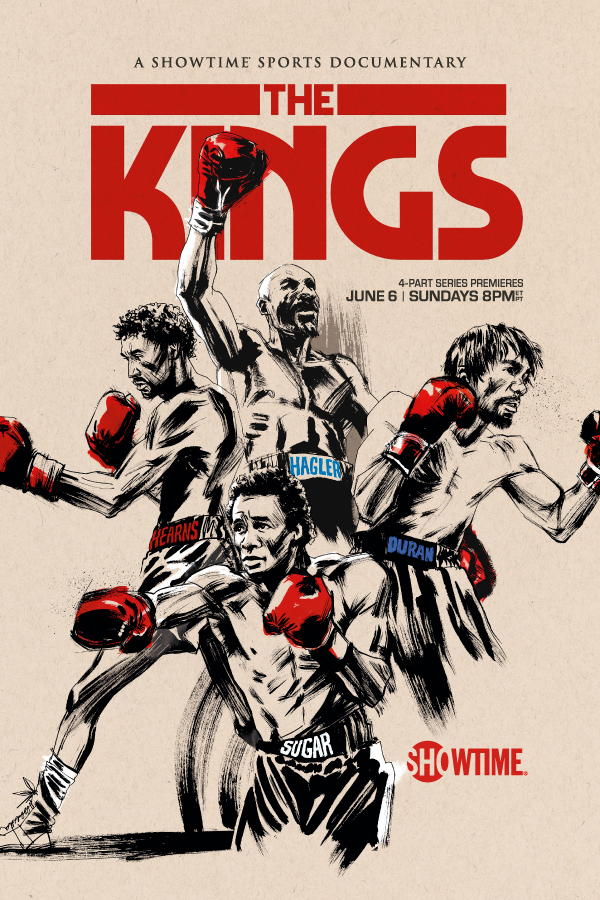Watch The Epic Trailer for ‘The Kings’—Showtime’s Docuseries About Boxing’s Golden Age
“Boxing is a metaphor for life. Everyone’s fighting for something.”
https://www.youtube.com/watch?v=_Smml9BovT0
For boxing fans unable to stomach Sunday’s PPV farce between former pound-for-pound champ Floyd Mayweather and YouTube star Logan Paul, Showtime Sports Documentary Films is offering a scintillating alternative.
Sunday, June 6 also marks the premiere of The Kings, a four-part docuseries chronicling the lives and careers of “Sugar” Ray Leonard, Thomas “Hitman” Hearns, Marvelous Marvin Hagler and Roberto “Hands of Stone” Duran. (Watch the trailer above, which kicks off with boxing trainer and commentator Teddy Atlas declaring, “Boxing is a metaphor for life. Everyone’s fighting for something.”)
Throughout the 1980s, these four kings of the sport—Leonard, Hearns, Hagler and Duran—faced off in a total of nine title fights, three of which were recognized by The Ring magazine as “Fight of the Year.”

The first round of the legendary bout between Hagler and Hearns is considered by many to be the most iconic round in the history of the sweet science.
“The eighties were arguably the best decade ever in the sport,” says venerable commentator Al Bernstein, who, alongside Al Michaels, called the Hagler/Hearns masterpiece. “These men were symbols of that time.”
The Kings explores the fighters’ stark differences, from their styles in the ring to their lives outside of it. Set against the seismic political and socio-economic shifts of the Reagan era, the docuseries uses in-depth interviews and archival footage to, according to Showtime Sports President Stephen Espinoza, illustrate “each man’s dramatic journey and the societal context that made them stars of sports and popular culture.”
Societal context aside, at its core The Kings is about fighting. The Golden Age of boxing exemplified in four of the greatest fighters who ever lived. Four men who loved nothing more than proving themselves in the ring, especially against each other.
“Time tends to make us embellish achievements of the past,” says Bernstein. “But I don’t think it’s embellishment when we talk about the remarkable things these men did. You can’t overstate it. It was extraordinary.”
